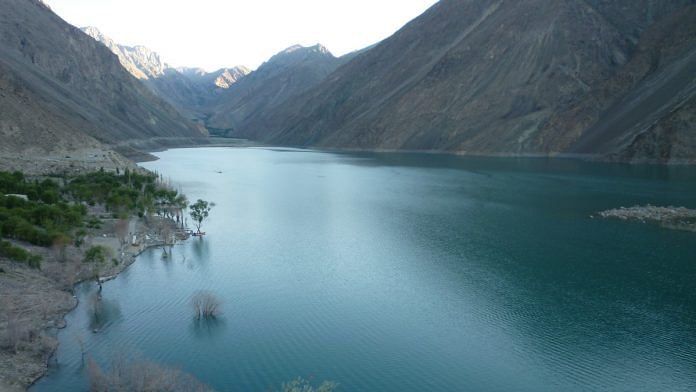New Delhi: Union Minister Nitin Gadkari’s recent statement on the Indus Water Treaty (IWT) — made exactly a week after the Pulwama attack — may have stirred a controversy, but India is neither ending the pact nor violating its provisions. It is only claiming what is rightfully its own, and was so far being used by Pakistan.
Following a tweet by Gadkari, Minister of Road Transport & Highways, Shipping and Water Resources, River Development and Ganga Rejuvenation Thursday, speculation was rife that India is avenging the loss of 40 CRPF personnel killed in Kashmir by stopping water supply to Pakistan under the treaty.
Under the leadership of Hon’ble PM Sri @narendramodi ji, Our Govt. has decided to stop our share of water which used to flow to Pakistan. We will divert water from Eastern rivers and supply it to our people in Jammu and Kashmir and Punjab.
— Nitin Gadkari (@nitin_gadkari) February 21, 2019
On Friday, clarifying his statement, Gadkari said, “The agreement was created keeping in mind equal distribution of water on a justifiable basis. Pandit Nehru gave this water to Pakistan in the spirit of a big brother. But now the kind of relationship we are having, especially by supporting terror and terrorism, that spirit is also gone. Pakistan has completely killed the spirit. We have now decided, and people are also telling me, that not a drop of this excess water should be given to Pakistan.”
He added that Prime Minister Narendra Modi would soon take a decision.
Reacting to Gadkari’s statement, Pakistan’s Federal Minister of Water Resources Faisal Vawda questioned India’s intention to stop the flow of water and warned that any Indian misadventure will be remembered by seven generations of their country.
Also read: Govt releases details on 3 river projects to divert waters away from Pakistan
What the treaty says
According to the IWT, signed in 1960 by prime minister Jawaharlal Nehru and then Pakistan President Ayub Khan, India can use 33 million acre-feet (MAF) of water from the eastern rivers — Sutlej, Ravi and Beas. India had so far been using only 31 MAF, allowing the rest to flow into Pakistan.
This is because none of the governments, since the treaty was established, could build an effective irrigation and canal system to channelise the water properly or to use it for storing the water allowed to be used by India, especially in the states of Jammu & Kashmir, Haryana and Punjab.
“This is not some kind of largesse or that we were being nice to Pakistan as it is made out to be that we were not using this water. We did not plan well, we did not create the required infrastructure that needed to be laid out there to fully utilise our share of water,” said Sharat Sabharwal, former Indian High Commissioner to Pakistan.
Following the IWT, facilitated by the World Bank, six rivers and their tributaries were brought under the purview for sharing of water between the sparring neighbours. They were divided into two broad categories — Easter Rivers (Sutlej, Beas and Ravi) and Western Rivers (Chenub, Jhelum and Indus).
India will now be building three projects on these rivers to ensure that the excess water does not flow into Pakistan. These projects are Shahpur Kandi dam project, UJH dam project in Jammu and Kashmir and a second Sutlej-Beas link in Punjab.
Also read: Water could become the major flash point between India and Pakistan besides Kashmir
Not the first threat
The Modi government, in 2016, had threatened to stop the flow of water under the treaty after the Uri attack. At the time, the government had stated that “blood and water” cannot flow together.
It had also suspended the meeting of the Permanent Indus Water Commission, which was set up under the treaty to implement and manage it.
According to Baljit Singh Kalha, a specialist in international law, “India could temporarily suspend the treaty unless Pakistan take serious visible actions in clamping down on state sponsored and protected terror outfits emanating from its territory conducting a proxy war on Indian soil.”
Last month, an inspection team from Pakistan had visited India to study the projects that India is building over the Chenab that falls under the Western River category.



